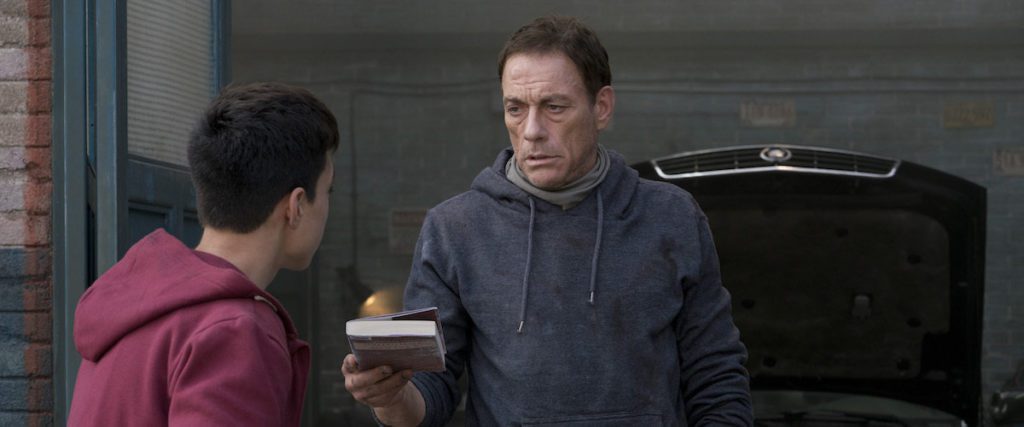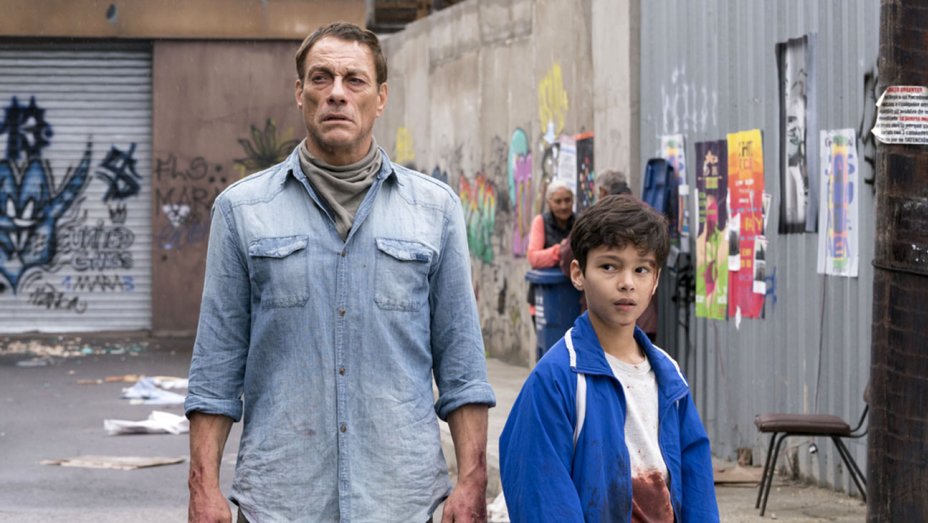Summary
A weird blend of coming-of-age, gangster and Van Damme clichés, We Die Young is an odd and frequently misguided though relatively inoffensive little film.
A part of me misses the days when you could see Jean-Claude Van Damme on a VHS cover and know exactly what kind of film you were getting. I mean, look at the cover of 1990’s Death Warrant! It has everything. Pants too high, shirt too tight – he’s even in the classic “there’s a spinning kick coming” pose. You look at the cover of We Die Young, by comparison, and it’s all just faintly embarrassing. You can’t fault Jean-Claude for being old, but he has long-since reached that odd stage in his career where he’s turning up in straight-to-VOD fluff and experimenting with off-kilter styles and the dreaded “serious” supporting roles. Here he plays Daniel, an addict ex-marine who isn’t in the film much to begin with and doesn’t have much to do beyond elaborately crease his face at other characters when he is.
Co-writer and director Lior Gellar’s new film isn’t bad, I suppose; it’s superficially relevant, politically-speaking, and competently churns through expected beats in both the coming-of-age and gangster genres, leaning so heavily against clichés and stereotypes that you half expect the whole thing to topple over. But Van Damme is understated and very watchable here, and the cartoonish gangland villain Rincon (David Castañeda) steals every scene he’s in – I suppose that’s fitting for a facially-tattooed boss figure in the Central American gang MS-13.

There’s your facile topicality, I suppose. We Die Young isn’t quite as egregious as something like Peppermint, which had its villains operate out of a piñata factory entirely without irony, but instead of that paranoid right-wing vibe it instead runs the risk of sensationalizing the whole ordeal, especially since the film opens with its teenage “hero”, Lucas (Elijah Rodriguez), giving the audience a narrated tour of his Washington D.C. neighbourhood that resembles something out of Mad Max. And this is only a 20-minute bike ride from the White House, we’re casually told. See? Political!
Only not really. Gellar takes such a laidback approach to everything that We Die Young can’t really summon the energy to be about anything at all, except perhaps one cliché after another. Daniel has flashbacks to Afghanistan; Lucas has a younger brother whom he’s trying to protect from the gangster lifestyle; Rincon quotes Shakespeare; and there are beatings filmed in slow motion and set to maudlin music. You can tell the film takes great pleasure in all this; not in a “look how cool all this is!” way, but definitely in an “I expected this to be a lot more serious than it actually is” one.
I admired what We Die Young was trying to do, even though it rarely if ever accomplished it, and I admired the actors’ commitment to the film, even if I wasn’t entirely thrilled with its overabundance of shaky camerawork and fast cuts to and fro, which are deployed liberally and to varied intended effect, although the only effect that is ever really achieved is general annoyance. But the whole thing is brisk and sincere enough that if you surrender to it you can at least enjoy a few moments of Jean-Claude Old Manne still managing to pay his bills.



